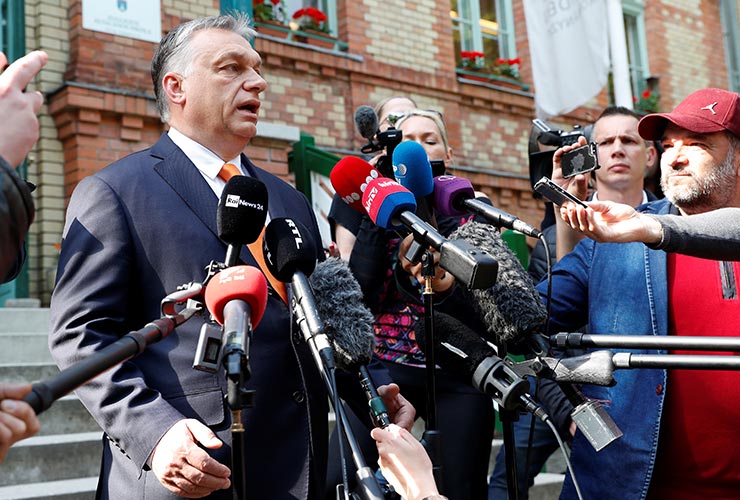
Viktor Orban, the current Prime Minister of Hungary, has been a controversial figure in the world of politics. His tenure has been marked by several instances of curbing the freedom of the press and limiting the independence of the media. This has led to criticism from many quarters, both within Hungary and outside.
Orban has been the Prime Minister of Hungary since 2010 and was re-elected to the position for the fourth time in 2018. His party, the Fidesz, has a two-thirds majority in the Hungarian parliament, which has allowed him to push through many of his policies with ease. However, his government has been accused of curtailing freedom of expression, especially when it comes to the press.
One of the most significant examples of this was the passing of a new media law in 2011, which was criticised by the European Union and other international organisations. The law created a Media Council, which was responsible for regulating all forms of media in Hungary, including television, radio, and print. The Council was controlled by Fidesz and was accused of having the power to impose heavy fines on media outlets that did not comply with its regulations.
In addition to the media law, Orban’s government has also been accused of taking over several media outlets and turning them into government mouthpieces. This has led to concerns about the independence of the media in Hungary and the freedom of the press. Several journalists have been fired or have resigned due to pressure from the government, and media outlets have been subject to heavy fines and other penalties for criticising the government.
Orban has defended his government’s actions, saying that he is trying to protect Hungary’s national interests and that the media needs to be regulated to ensure that it is not spreading false information. He has also accused the international community of trying to interfere in Hungary’s affairs and has said that he will not be intimidated by external pressure.
However, critics argue that Orban’s actions are part of a larger trend of authoritarianism in Hungary, where civil liberties are being curtailed, and dissent is being suppressed. They say that the media is essential to a functioning democracy and that any attempt to control it is a threat to the country’s democratic institutions.
Information and its persistent opposite, disinformation have been used throughout history to direct immense human energy either towards constructive or destructive uses. As I have written before in several pieces, disinformation is one of authoritarianism’s favourite weapon’s against both foreign as well as domestic threats. Viktor Orban’s interpretation of the press’ role in a democratic country is questionable at least. The prime minister does not seem to believe in the quote that plainly says, “democracy dies in darkness” and appears to be adamant in his quest to use the media to further his cause, whatever its objectives may be. Less than a month ago, a book published in Romania by a well-known journalist documented Orban’s attempt at influencing not only domestic public opinion but also that of Hungarians living abroad, specifically in neighbouring Transylvania. If the allegations are true, which is difficult to prove beyond reasonable doubt, this amounts to just shy of interfering with the political agenda of a neighbouring country and formal ally. Nonetheless the fact that Mr. Orban defiantly refuses to consider both fundamental democratic values and diplomatic uzances and is relentless in his extremist speech is reason enough to consider him untrustworthy when it comes to acting in a cooperative manner with his allies, especially the European Union.
Viktor Orban’s tenure as the Prime Minister of Hungary has been marked by several instances of curbing the freedom of the press and limiting the independence of the media. Things went so far as to reach the point where he was labelled „press freedom predator” by the prestigious non-governmental association Reporters Without Borders. His government’s actions have been criticised by the international community, and there are concerns about the future of democracy in Hungary. It remains to be seen whether Orban will change his approach or continue down the path of authoritarianism.



 Subscribe
Subscribe